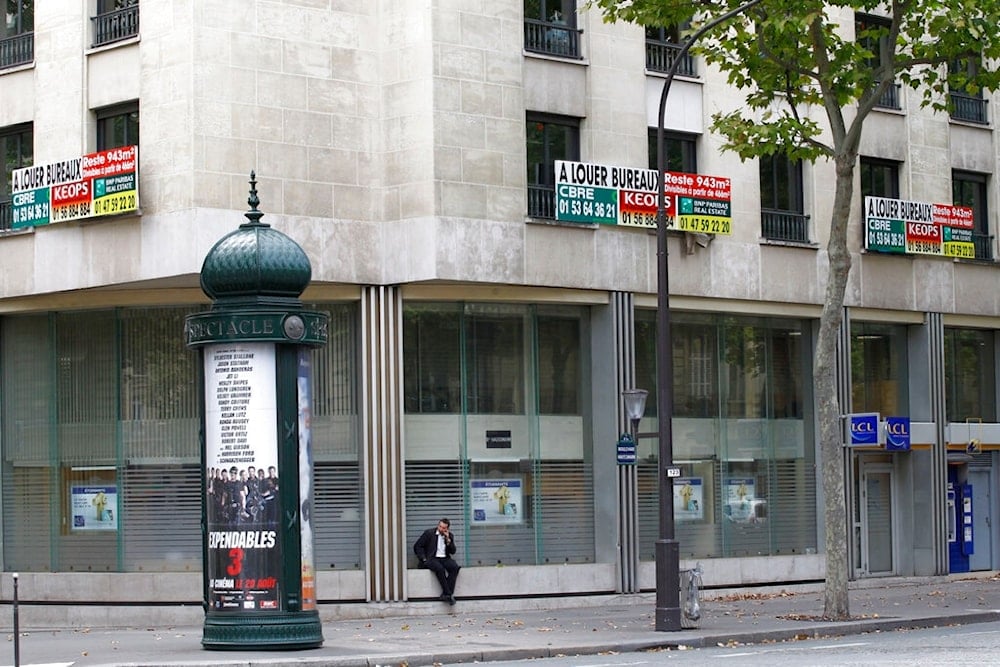French business confidence drops amid political, fiscal uncertainty
All sectors of the economy, with the exception of industry, reported a decline in confidence during Insee's latest business survey.
-

A man uses his cell phone at the foot of an office building with placards reading: Offices for rent, in the business district of Haussmann Boulevard, in Paris, Thursday, August 14, 2014. (AP)
French business confidence has fallen for the third consecutive month in December, deepening concerns about the country's economic outlook, Bloomberg reported on Friday.
The latest data from Insee, France's national statistics agency, showed its sentiment index dropped by two points to 94, the lowest since July.
The downturn comes after President Emmanuel Macron dissolved the National Assembly in July, triggering elections that rattled businesses and investors.
In December, former Prime Minister Michel Barnier was dismissed in a no-confidence vote, leaving the country without a clear fiscal direction.
Macron subsequently appointed Francois Bayrou as the new prime minister, tasking him with forming a government and crafting a plan to repair public finances.
However, negotiations over the cabinet's composition have stalled, leaving France reliant on emergency budgetary measures as it enters 2025.
Read more: New French PM begins consultations to form new government
Confidence falters
All sectors of the economy, with the exception of industry, reported a decline in confidence during Insee's latest business survey.
The employment climate index also slipped to 96, well below the long-term average of 100, signaling weakening prospects for job creation.
The uncertainty is prompting businesses to scale back investment and hiring plans.
Earlier this week, Insee warned that economic growth would likely remain sluggish in the first half of 2025 unless the political deadlock is resolved quickly.
The Bank of France echoed this sentiment, cutting its growth forecast for next year to just 0.9%.
La note de conj @InseeFR est sortie.
— Stat'junior 📊 (@statjunior) December 17, 2024
L'activité est suspendue à un regain de confiance : les enquêtes sont dégradées, l'incertitude politique peut renforcer l'attentisme.
La croissance serait nulle en fin d'année et de 0,2 % par trimestre début 2025.https://t.co/0pSkAhNtRh pic.twitter.com/pHMbCtUzkR

 2 Min Read
2 Min Read








